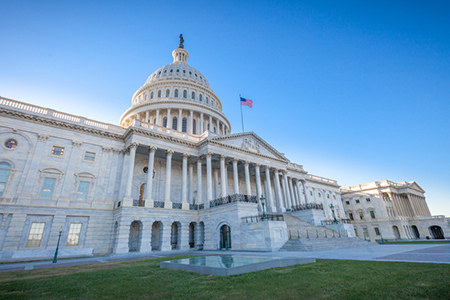Following the financial crisis of 2008 and the Great Recession, the federal government imposed regulations in the form of the Dodd-Frank Wall Street Reform and Consumer Protection Act—an effort to ensure financial stability and consumer protection.
Senate Banking Committee Chair Mike Crapo introduced bill S. 2155—the Economic Growth, Regulatory Relief, and Consumer Protection Act—which proposes to roll back these regulations and ease restrictions on regional banks, allowing consumers easier access to credit. The Senate passed the bill in a 67-31 vote on Wednesday, receiving full Republican support and splitting the Democratic party. The bill is now moving to the House to be reconciled before heading to the President’s desk.
The real estate industry has been vocal since the bill’s introduction. The National Association of REALTORS® (NAR) supports the proposed changes:
“The Economic Growth, Regulatory Relief, and Consumer Protection Act contains some favorable provisions for the housing industry, including expanding Fannie Mae and Freddie Mac’s use of alternative credit scoring models; holding Property Assessed Clean Energy, or PACE, loans more accountable; and improving access to manufactured housing, as well as easing credit through reduced regulatory burdens on smaller community banks and credit unions,” said NAR President Elizabeth Mendenhall in a statement.
Meanwhile, the Mortgage Bankers Association (MBA) sent a letter to committee members last week also supporting the bill, and applauded the Senate for the passing vote.
“I want to commend Chairman Crapo and the bipartisan coalition of senators that worked for months to ensure the passage of this important piece of legislation,” said David H. Stevens, president and CEO of the MBA, in a statement. “This bill will further ensure consumer protections and adequate access to mortgage credit…MBA now calls on the House to swiftly take up this bill for consideration.”
The National Association of Home Builders (NAHB) also supports the bill, but believes it is only the start to a necessary regulatory change.
“The first year of Donald Trump’s presidency has seen major progress on efforts to reduce the relentless and costly over-regulation of American industry,” said Randy Noel, NAHB chairman, in a statement. “However, while much has been accomplished, the hefty price homebuyers are paying for government regulations represents just one more obstacle that home builders need to overcome in restoring the marketplace to normal conditions.”
In addition, the Independent Community Bankers of America believes any pushback on the bill is caused by a lack of understanding. The group is attempting to clarify any misconceptions about how the bill would impact Home Mortgage Disclosure Act (HMDA) reporting.
“It’s time to clear up some of the misinformation that is spreading about S. 2155—it does not at all affect longstanding and already-detailed Home Mortgage Disclosure Act data-collection requirements,” ICBA President and CEO Camden R. Fine said in a statement. “Those community banks that have been required to collect and report HMDA data on covered mortgage loans will continue to do so, and report on an annual basis as they did for decades until the Consumer Financial Protection Bureau dramatically expanded reporting mandates in 2015. S. 2155 takes a common-sense approach to ensure necessary data will continue to be reported without overburdening low-volume lenders.”
What changes would this bring? The biggest impact would be seen in the designation of a Systemically Important Financial Institution (SIFI), of which the threshold would rise from $250 billion in assets from the current $50 billion. According to Business Insider, this change would recategorize multiple large regional banks, dropping the current banks impacted by strict SIFI restrictions from 38 to 12.
In addition, the bill proposes the following modifications:
- Free credit freezes for consumers via credit reporting agencies such as Equifax
- Protection against some class action lawsuits for credit reporting agencies
- The exemption of the Volcker Rule—restrictions on trading and investing—for banks with less than $10 billion in assets
- An increase in the bank threshold from $10 billion to $250 billion for Federal Reserve stress tests
- Less restrictions on lending for small community banks
- Relaxed reporting on banks with less than 500 mortgage originations per year
While some are worried the removal of these regulations introduces risk—a possible housing bubble and another financial crisis—the real estate industry is focusing on the rewards related to increased freedom from the lessening of current lending regulations.
“REALTORS® believe that financial regulations need to be balanced with appropriate consumer protections, and we believe this bill achieves that goal; we urge Congress and the administration to enact S. 2155 into law,” said Mendenhall.
Stay tuned to RISMedia for more developments.
 Liz Dominguez is RISMedia’s associate content editor. Email her your real estate news ideas at ldominguez@rismedia.com. For the latest real estate news and trends, bookmark RISMedia.com.
Liz Dominguez is RISMedia’s associate content editor. Email her your real estate news ideas at ldominguez@rismedia.com. For the latest real estate news and trends, bookmark RISMedia.com.











